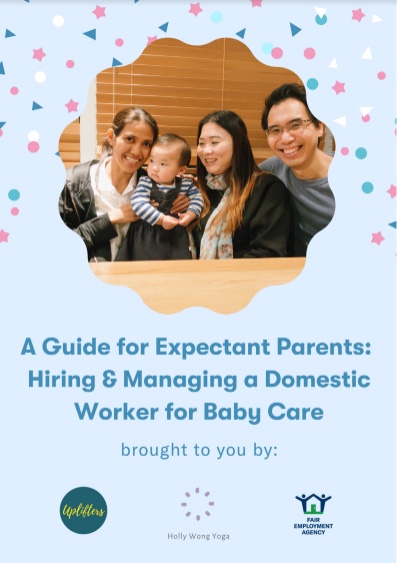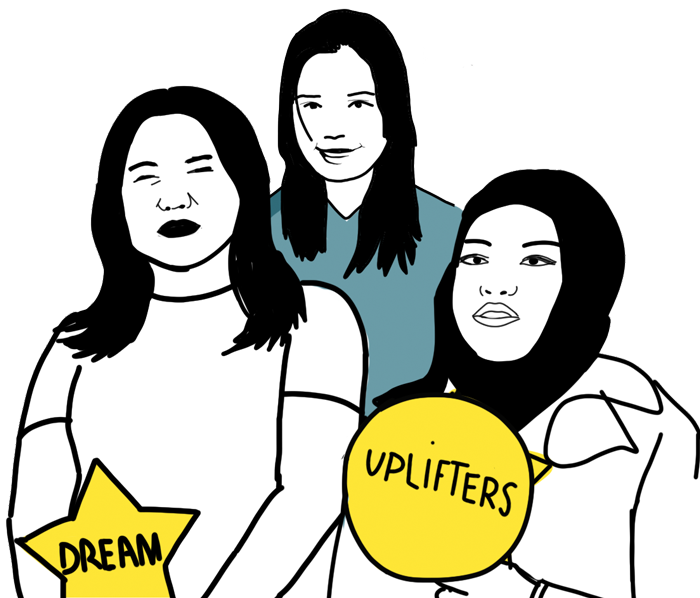The whole world as we know is facing something unprecedented, something that none of us, our friends and colleagues, our employees and employers, and even our governments have faced.
In these times, we sometimes need to be flexible and adopt solutions that we did not think of before, that are new to all of us. This requires a high sense of adaptation. The good news is that being a migrant domestic worker, you might already master the art of adaptation. You live and work in a foreign country, you listen and speak a foreign language, you often face heavy workload with limited time off and you learn how to best meet unfamiliar employers’ expectations. That’s A LOT to adapt to but YOU also have a lot of STRENGTHS that you have exercised and solidified over the years!
And now, the pandemic shakes it all up again.
Let’s see how good communication can help adapt even more.
The need for compromises and healthy boundaries
One element will always matter: the feeling, for both parties, that their ideas were heard even if they may not be 100% satisfied with the final solution. Sometimes it’s hard to find solutions that are fully fair to all parties, all the more if you live at your employer’s house and that your livelihood depends on them. It is most likely that the compromise falls on you in the end. But positive communication and healthy boundaries can help relieve a bit the weight of these compromises.
Working and living in your employer’s home means changes for both the employers and you. Without any specific rules around this new situation, we need to consider the main impacts and then reflect on how a win-win solution can be found.
Both you and your employers may be stressed, which makes it hard to express your needs. Let’s then focus on strategies that help you express your needs in a constructive manner without feeling scared or being on the defensive.
The pandemic creates a double responsibility.
As much as the employer wants to protect their home and family from infection, you also have a responsibility to ensure that you do not create a situation of risk for yourself and for them. As a result, some employers are asking their domestic workers not to go out and meet friends on their day off as long as the risk of infection is present.
While still allowed by the government, employers may be worried that gathering in groups leads to infection? Is it fair? Yes, it is.
You still want to be entitled to the right to rest and your autonomy on your day off? Is it fair? Yes absolutely.
Staying home on your day off can be fine for a number of domestic workers but for some, it might give rise to different situations. Here is some advice about what you could do or say to your employer in these situations.
SITUATION ONE: You are asked to stay home on your day-off but you’d prefer going out as usual.
Speak to your employer and help them see things from your perspective. If you feel comfortable enough, consider the below example of sayings.
Use empathy.
- I understand you are concerned about my contacts outside the home
- Even if I don’t meet friends, I feel the need to go out, walk my own stress away.
- Having friends is important to me to feel good and healthy. I can speak with people I like while keeping social distance.
- I take my health and the health of the family I work for to heart
SITUATION TWO: You are being asked to work on your day off. You are okay with that but your employer did not mention extra payment.
Use empathy again.
- I understand the situation requires extra work and I am eager to help.
- I need to be paid for this extra work, especially at a time where I have the responsibility to help my own family to deal with the pandemic.
- I feel worried about my family back home who does not have a reliable medical system; I would be happy to be able to further help my family be better prepared and safer.
As long as you feel comfortable sharing, you can give your employer more information about your concerns for your family so they better understand your situation.
Note that in Singapore employers are allowed to pay domestic workers to work on their day off while it is not allowed in Hong Kong. In all cases, in real life mutual agreement is key.
SITUATION THREE: You are being asked to work on your day off. Yet, you’d prefer to rest on that day.
In Hong Kong, the law provides 24 hours of uninterrupted rest and this holds true until the law changes, however, living in somebody’s house also demands that you preserve the relationship
- I feel the need for rest and relaxation in order to stay healthy and strong.
- I feel extra stress because of the pandemic and I’d be very grateful if I could rest on my day off
- Feeling rested will help me do a good job, taking care of the house and looking after the family.
Extra tips to make the most out of these conversations:
- Have these conversations with your employer when you feel both you and them are calm and have the time to listen to each other. If needed, ask your employer to carve some time for you to discuss something important
- If you feel stress, write some points on a piece of paper so that under stress you still remember to voice out points important to you.
- Use empathy again and again. Walk into your employers’ shoes and make them walk into yours
- As much as possible, preserve the relationships which will, in the end, preserve your job. This crisis too shall pass.
Wishing you all the best courageous ladies! Remember how important your job is to you, your family and your employer. Your work protects the health of your employer’s family during this pandemic. Be proud of that.
This is not an easy thing to remain optimistic and happy in these difficult times. But maybe there is some meaning to be found in them. This constant adaptation might be another chance to grow your resilience even more.
Learn more about how to adapt to the changes brought in by the pandemic:
- If these conversations with your employers still feel stressful, you can prepare in advance what you want to say with the DESC step by step communication technique. Read this article Communicate well with your employer during Covid-19
- If you feel stressed about the impact the pandemic can have on your financial situation, you can learn more on how to adapt your money management by reading this article You Didn’t Manage Your Finances Well, Now What?
—
This article was written by Lola Chetti (MA- Consulting, LLB(Hons), PCC-ICF ), who is a Change Consultant and Executive Coach working in Hong Kong. She truly believes that an investment in people development and empowerment in all spheres of society will make a better world for all of us, and is passionate about supporting women and children education and empowerment

